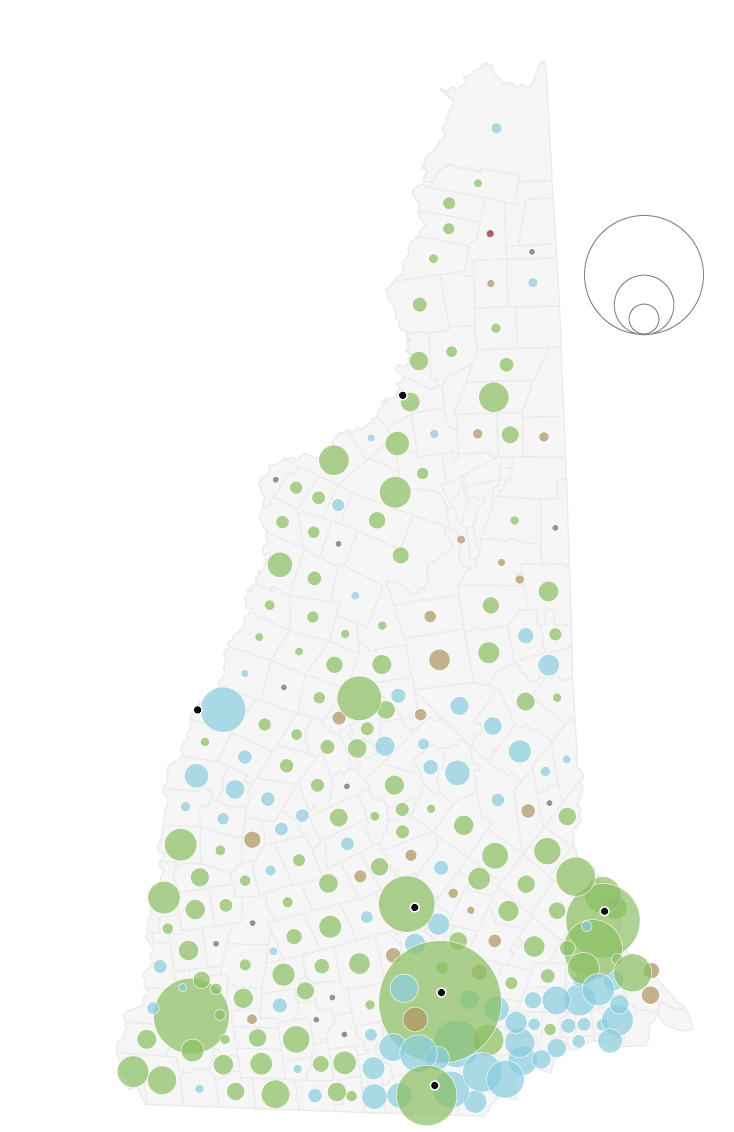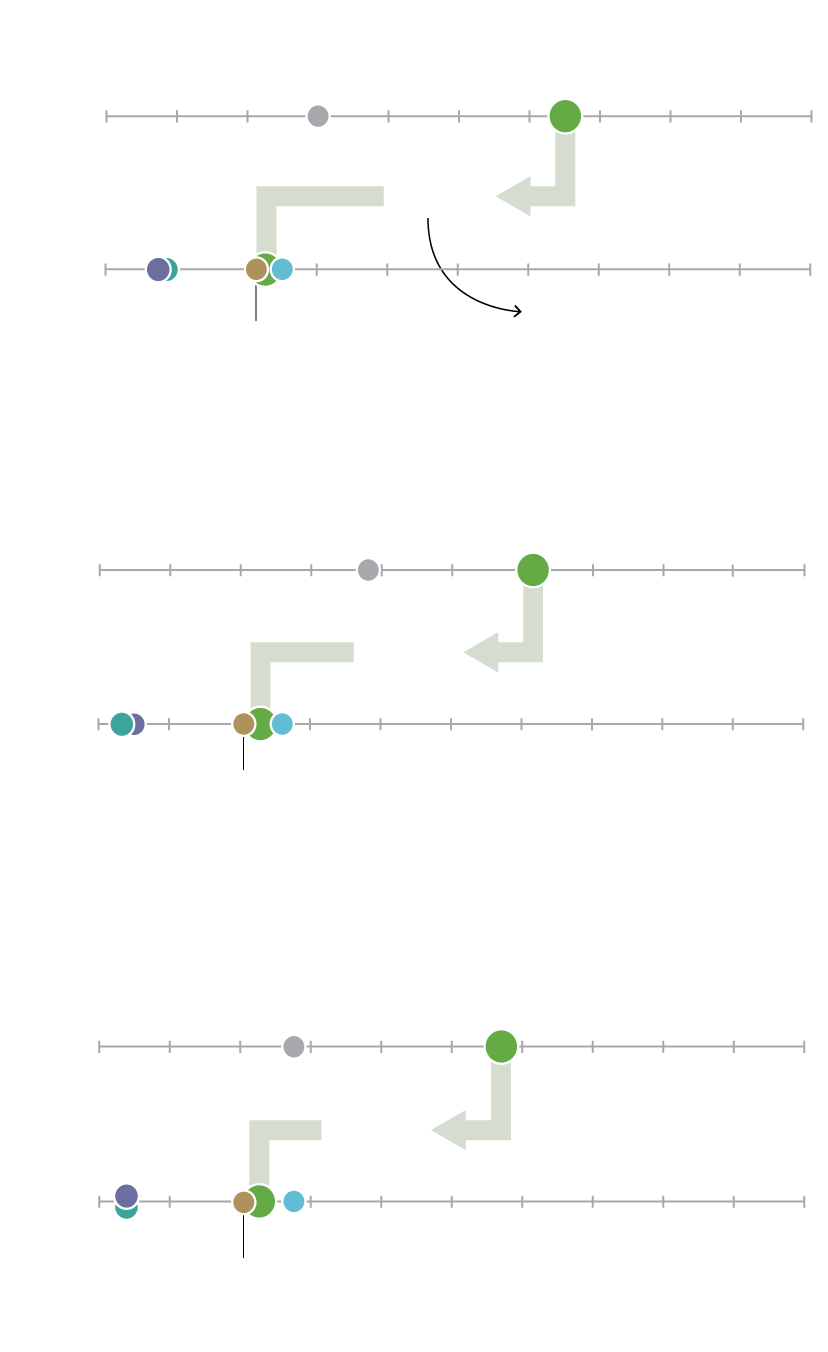How Bernie Sanders won New Hampshire and why the race isn't over yet
Vermont Sen. Bernie Sanders narrowly won Tuesday's New Hampshire Democratic primary, trailed by former South Bend, Ind., Mayor Pete Buttigieg and Minnesota Sen. Amy Klobuchar. Here's how the candidates fared with 98% of precincts reporting.
Sanders

25.7%
Buttigieg

24.4%
Klobuchar

19.8%
Warren

9.2%
Biden

8.4%
% of popular vote
Four years ago, Sanders won a landslide victory in New Hampshire over rival Hillary Clinton when the two faced off head to head. With more competition this time, the race was much closer and Sanders lost some areas he had won in 2016.
The result is that, despite his victory, Sanders is still nearly even with Buttigieg in the metric that matters most, the number of pledged delegates towards the nomination. So, after the first two races of the year, it's still unclear who might face off with President Trump in November.
Sanders swept the biggest cities
New Hampshire is a small New England state, with a few cities in the south and rural towns scattered to the north. More than 230 towns held an election; Sanders won about half of them. He won towns from every corner of the state, but his most crucial victories were in the largest cities, which gave him the margins he needed to finish first.
Margin of victory by town
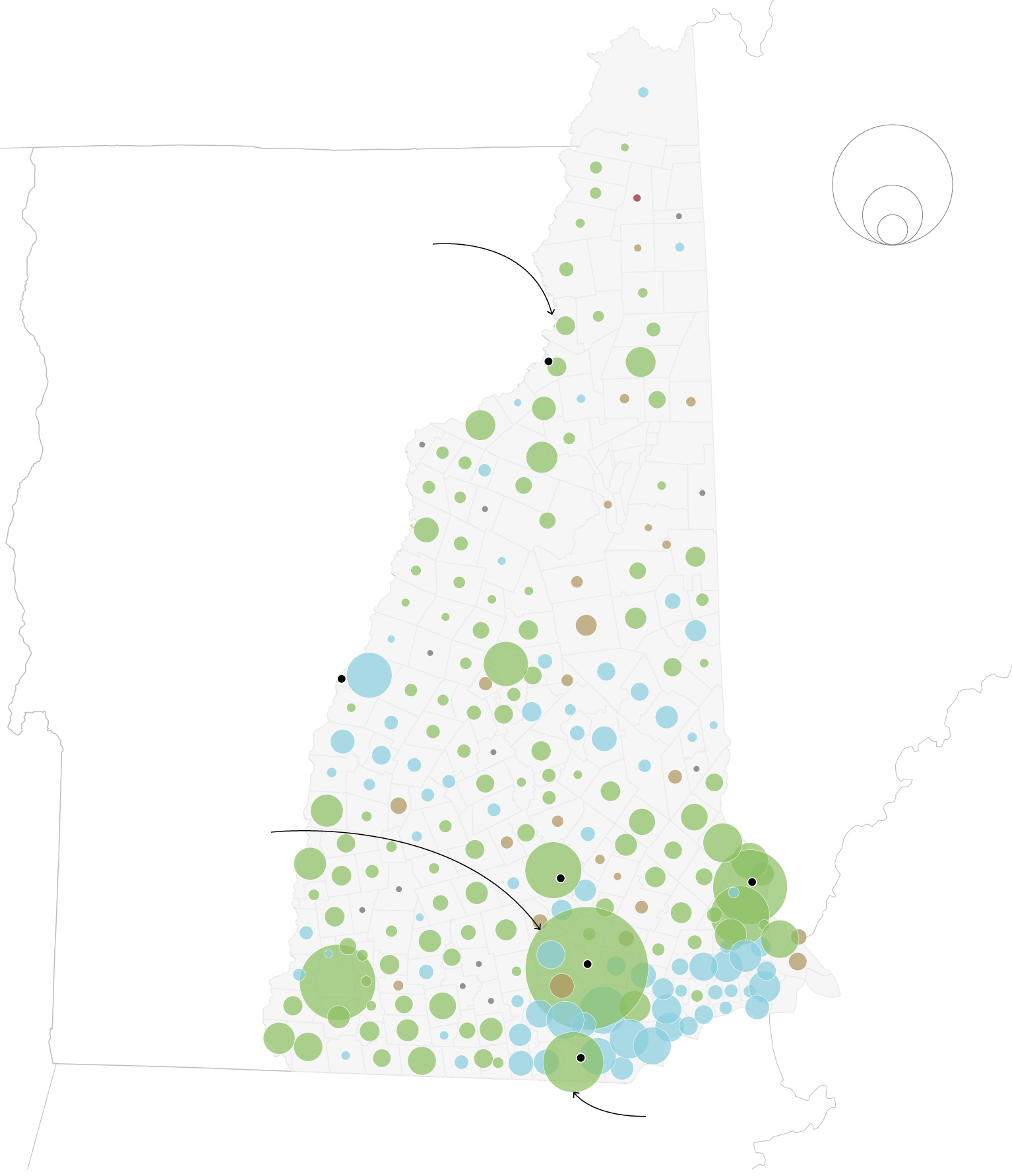
Margin of victory
2,000 votes
1,000
500
Sanders won many towns bordering his home state of Vermont.
Lancaster
VERMONT
MAINE
Hanover
He dominated the biggest city in the state by tens of thousands of votes.
Dover
Concord
Manchester
Nashua
Sanders also carried Nashua, a city bordering Warren’s home state of Massachusetts.
MASSACHUSETTS
A tighter race than last time
Sanders dominated in 2016, winning all 10 counties and 60% of the vote. This time, facing a crowded field of competitors, he claimed less than 30% of the vote and lost dozens of towns.
Margin of victory by town
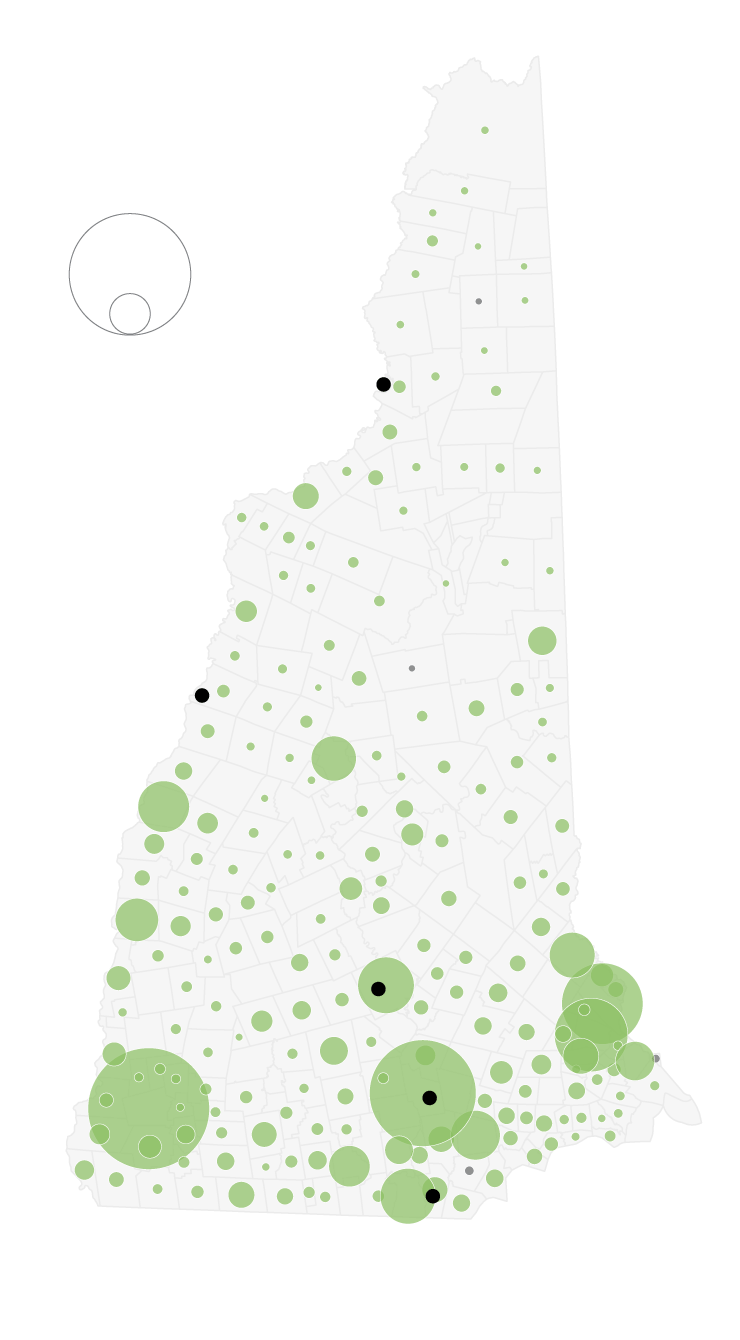
2016
Margin of victory
3,000 votes
Lancaster
Hanover
Concord
Manchester
Nashua
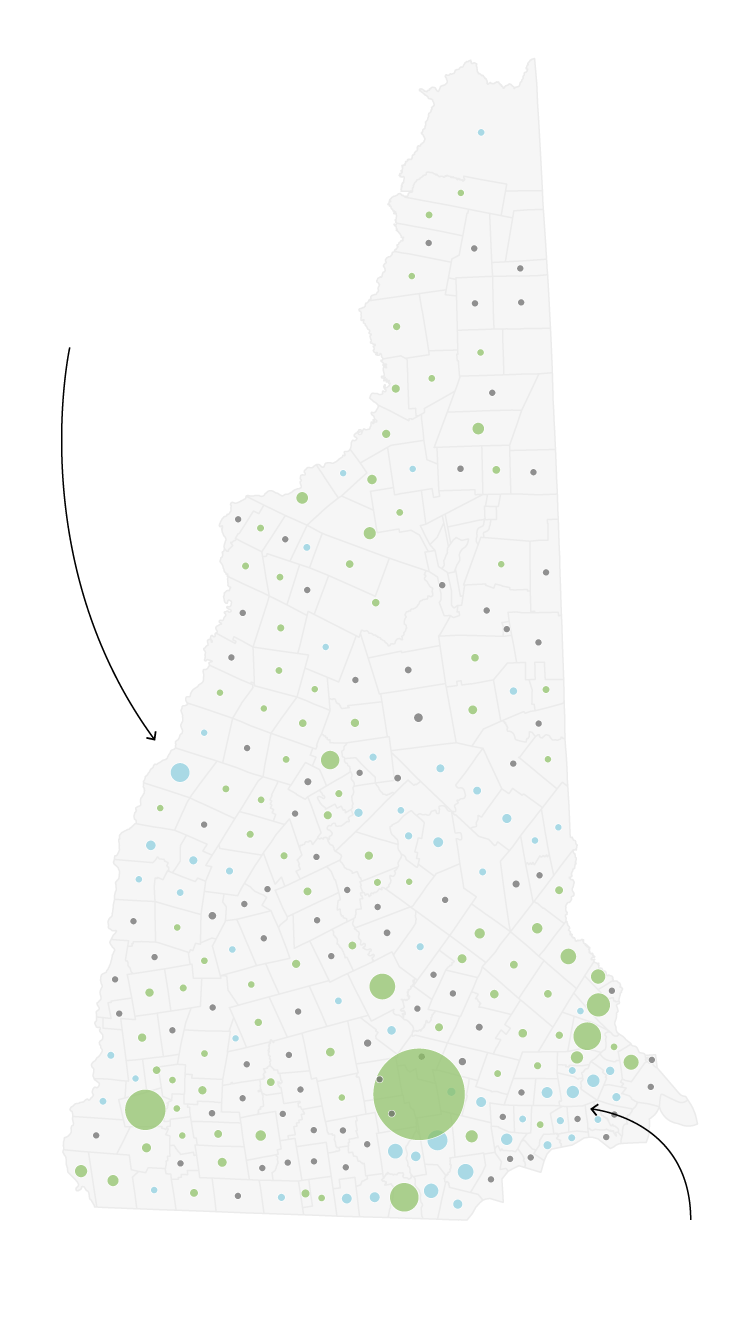
2020
Sanders lost Hanover, home to Dartmouth College, and three nearby towns bordering his home state of Vermont.
Buttigieg won in two dozen towns in the southeast.
Buttigieg won three counties, including Rockingham County, the wealthiest in the state. In those areas, Sanders saw large declines from four years ago but still finished a close second or third.
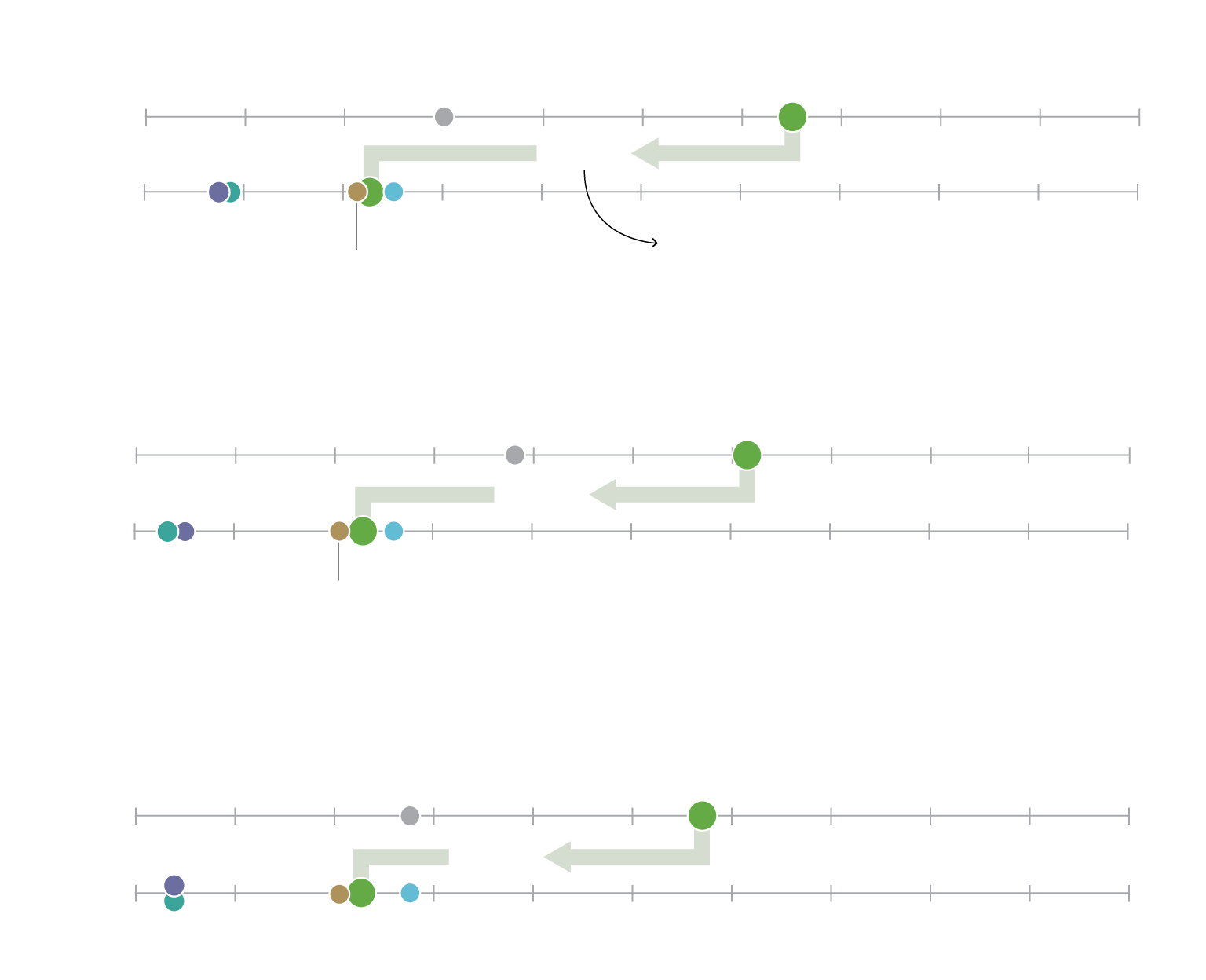
Carroll County
100
0% votes
50
Clinton
Sanders
2016
-40%
2020
Buttigieg
Biden
Warren
Sander’s largest county loss to Buttigieg
Klobuchar
Belknap County
50
100
0%
Clinton
Sanders
2016
-38%
2020
Buttigieg
Warren
Biden
Klobuchar
Rockingham County
100
0%
50
Sanders
Clinton
2016
-34%
Biden
2020
Warren
Klobuchar
Buttigieg
Amy gains Klomentum
Klobuchar exceeded expectations and finished a strong third, but only won a handful of towns. Massachusetts Sen. Elizabeth Warren and former Vice President Joe Biden finished far behind the top three and failed to carry any areas.
Share of total vote by candidate
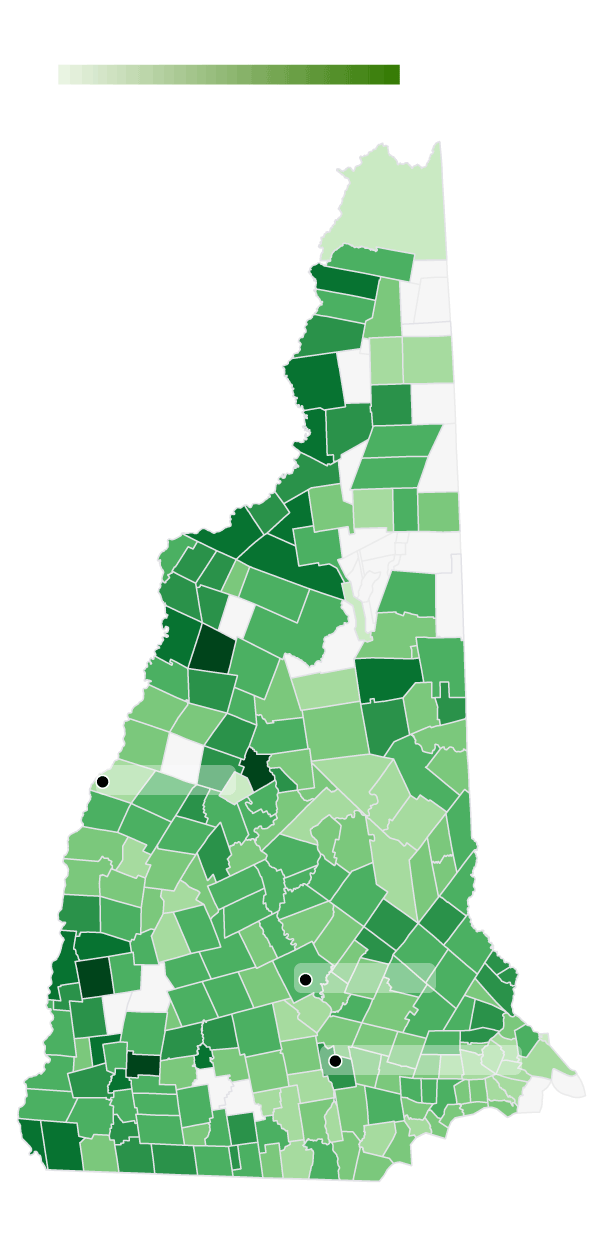
Sanders
0
40%
Hanover
Concord
Manchester
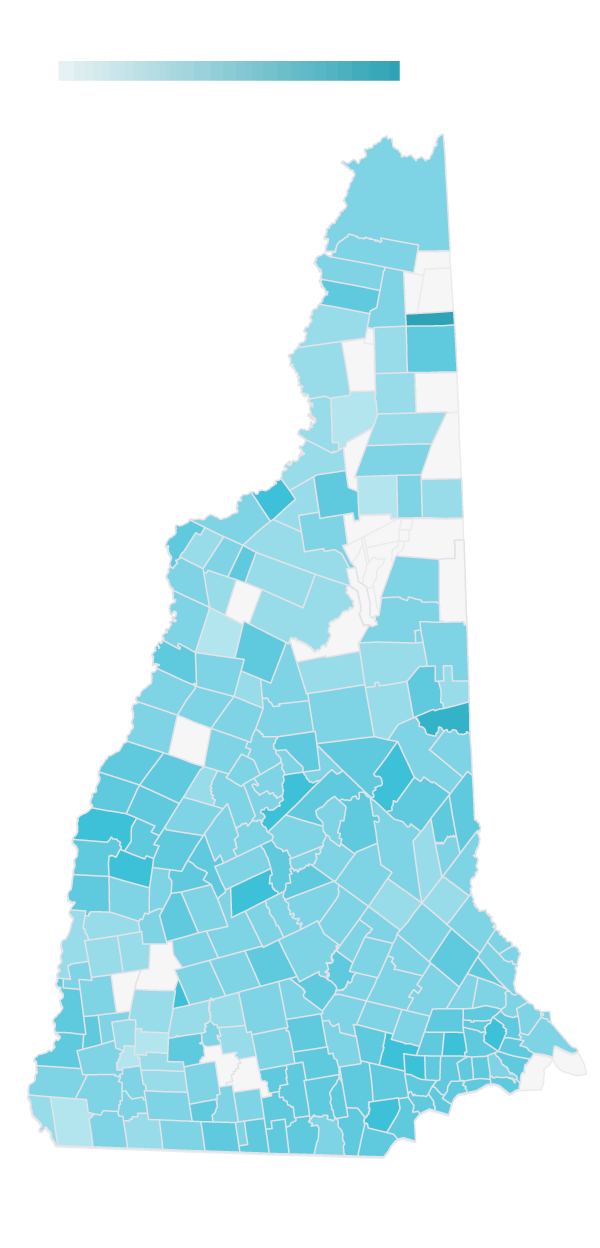
Buttigieg
0
40%
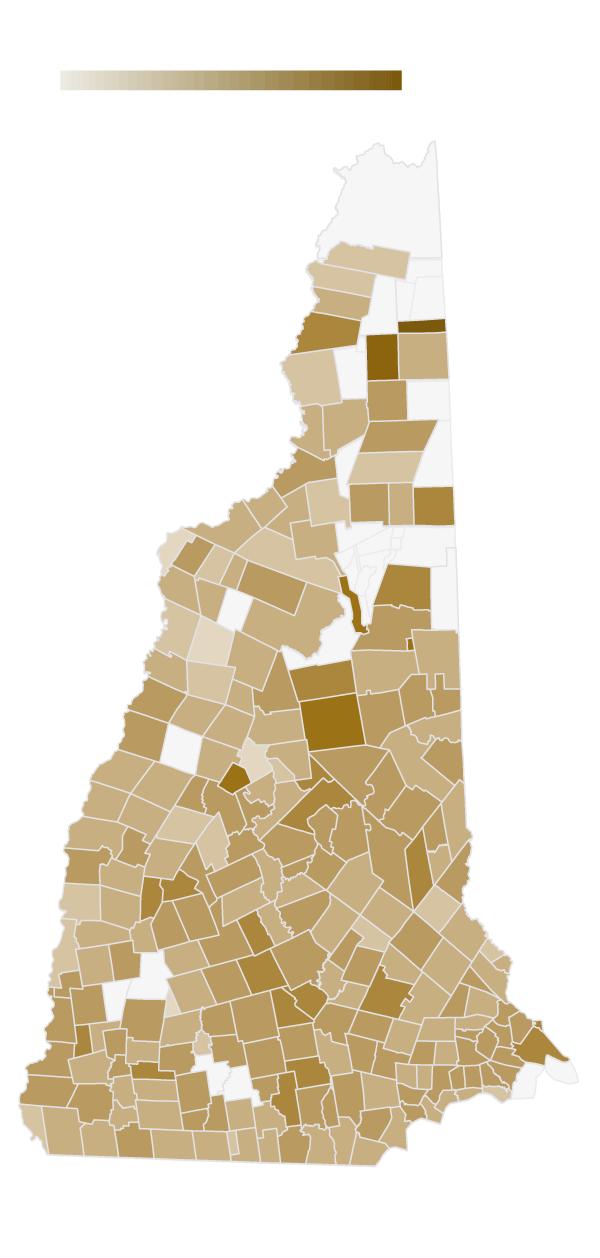
Klobuchar
0
40%
Three Republican -leaning towns that voted for Clinton in 2016 voted for Klobuchar.
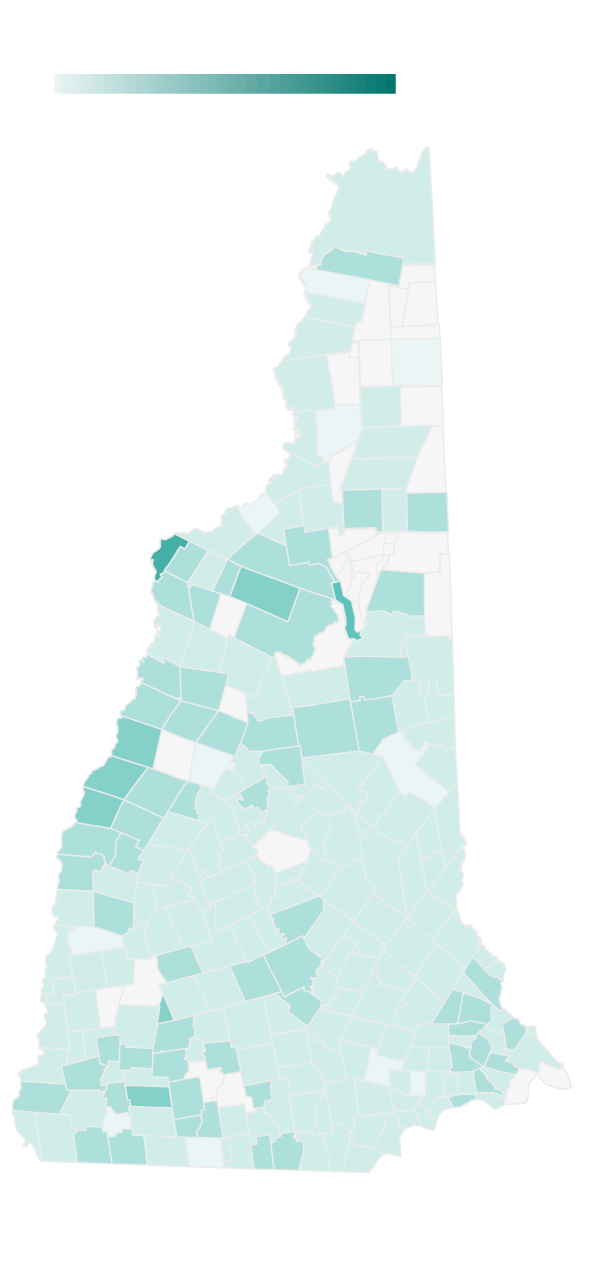
Warren
0
40%
Warren got fewer than 2,000 votes in Manchester.
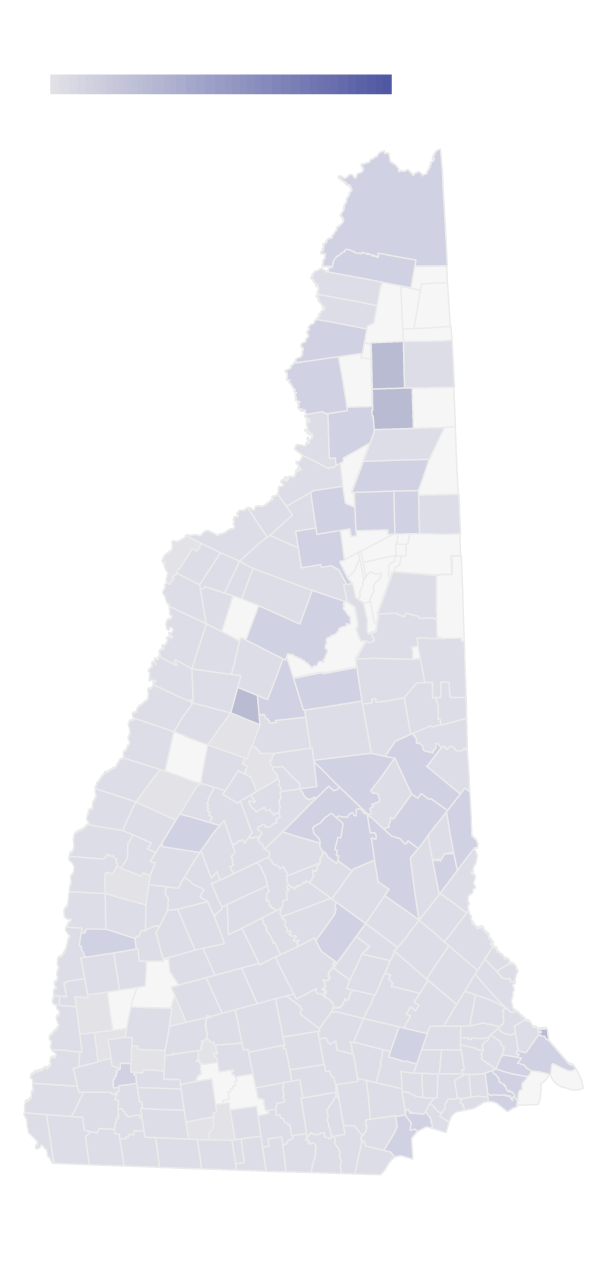
Biden
0
40%
Biden failed to get 20 percent of the vote anywhere.
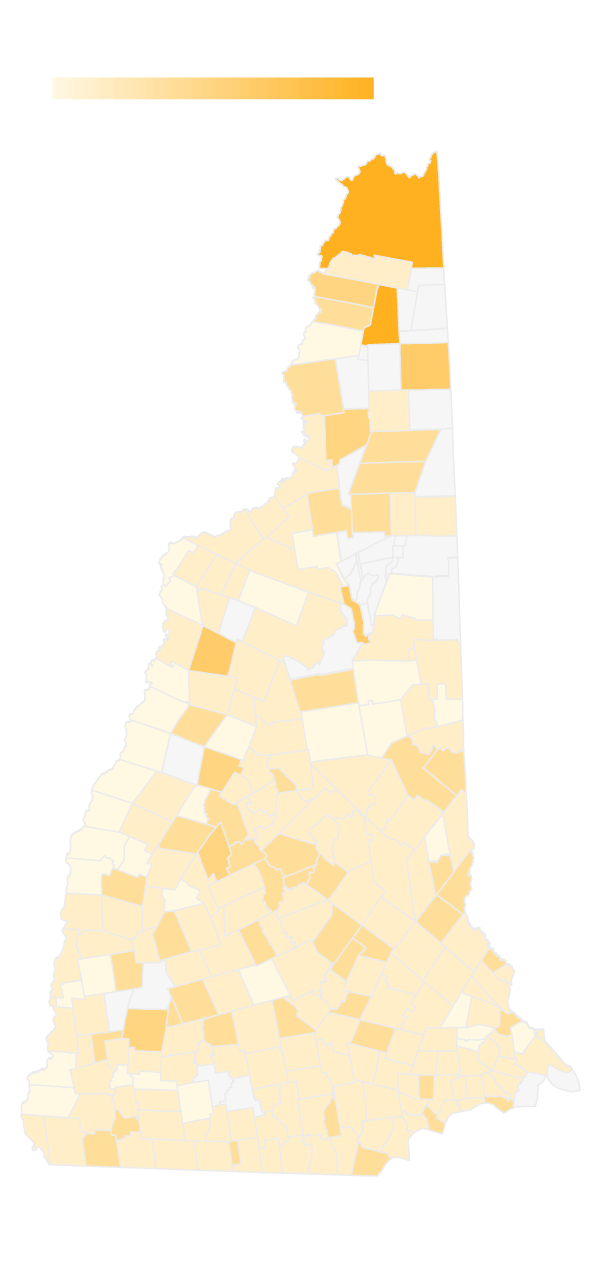
Everyone else
40%
0
The state of the race
Due to the way delegates are apportioned, which varies by state, Sanders' victory gives him little edge over Buttigieg. Early estimates by the Associated Press project that the two top finishers in New Hampshire will receive the same amount of pledged delegates. Add in the contested Iowa caucus results from last week and the two are neck-and-neck.
But they are still more than 1,900 delegates short of what they need to win. Campaigns will have their next chance to pick up support in Nevada and South Carolina later this month.
| CANDIDATE | IOWA | N.H. | TOTAL | |
|---|---|---|---|---|
 | Pete Buttigieg | 13 | 9 | 22 |
 | Bernie Sanders | 12 | 9 | 21 |
 | Elizabeth Warren | 8 | 0 | 8 |
 | Amy Klobuchar | 1 | 6 | 7 |
 | Joe Biden | 6 | 0 | 6 |

